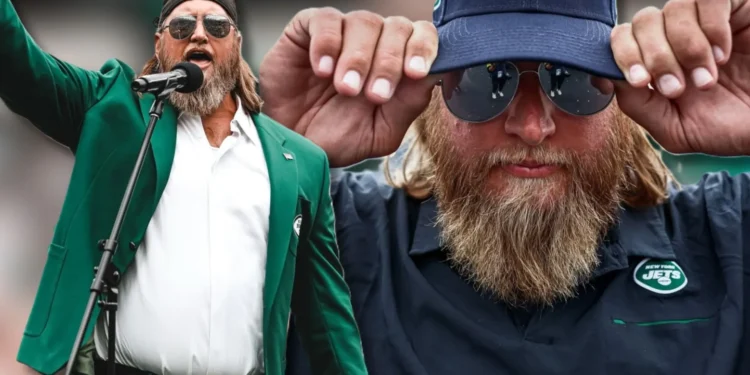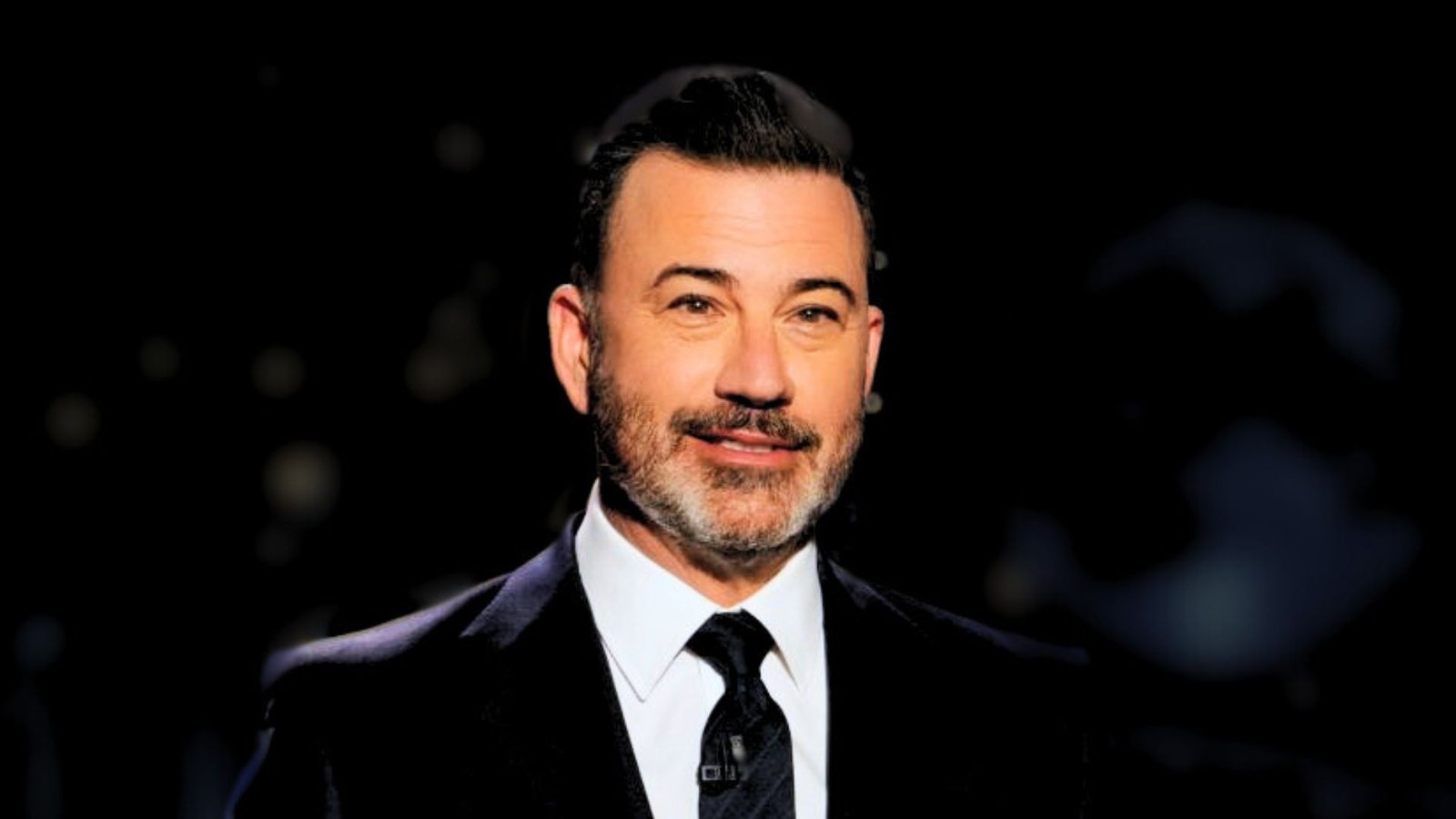In a shocking turn of events that has left the sports world reeling, Nick Mangold dies at the young age of 41, succumbing to complications from a long-standing kidney disease. The former New York Jets center, a pillar of strength on the field and a beloved figure off it, passed away on Saturday night, October 25, 2025, just weeks after publicly pleading for a kidney donor. This devastating news comes as a stark reminder of how even the toughest athletes can be vulnerable to hidden health battles, sending shockwaves through the NFL community and beyond.
Mangold’s death was announced by the New York Jets on Sunday morning, plunging fans into mourning for one of the franchise’s most iconic players. Known for his unbreakable spirit, flowing blond locks, and unyielding loyalty, Mangold wasn’t just a football star—he was a symbol of resilience. But behind the Pro Bowl accolades and Hall of Fame-worthy career lay a nearly two-decade struggle with chronic kidney disease, a genetic condition diagnosed shortly after he entered the league. As tributes pour in from teammates, coaches, and fans, we remember the man who anchored the Jets’ offensive line through triumphs and trials, leaving an indelible mark on the sport. For the full official Jets statement, visit their site.
From Ohio Roots to NFL Stardom: Mangold’s Early Life and Rise
Born on January 13, 1984, in Centerville, Ohio, Nicholas Allan Mangold grew up in a sports-loving family that instilled in him the values of hard work and perseverance. His father, Vernon, was a high school football coach, and young Nick quickly showed promise on the gridiron. At Archbishop Alter High School, Mangold excelled as an offensive lineman, earning All-Ohio honors and setting the stage for a stellar college career at Ohio State University.
At Ohio State, Mangold became a standout center for the Buckeyes, earning All-Big Ten recognition and helping lead the team to a Fiesta Bowl victory in 2006. His combination of size (6-foot-4, 307 pounds), intelligence, and agility made him a top prospect in the 2006 NFL Draft. The New York Jets selected him in the first round, 29th overall, a pick that would prove to be one of the best in franchise history. Mangold’s arrival marked the beginning of a golden era for the Jets’ offensive line, where he teamed up with left tackle D’Brickashaw Ferguson to form the legendary “Nick & Brick” duo.
From his rookie season onward, Mangold was a model of consistency. He started all 164 games he played over 11 seasons, missing only a handful due to injuries. His durability was legendary; he played through pain that would sideline lesser players, embodying the tough-as-nails ethos of professional football. Mangold’s technical prowess—his quick hands, precise blocking, and ability to read defenses—made him indispensable. He was the heartbeat of an offensive unit that powered the Jets to three playoff appearances, including back-to-back AFC Championship Games in 2009 and 2010 under head coach Rex Ryan.
During those championship runs, the Jets led the NFL in rushing yards in 2009 with 2,756 yards and ranked fourth in 2010, thanks in large part to Mangold’s anchoring presence. Alongside Hall of Famer Alan Faneca, he protected quarterbacks like Mark Sanchez and facilitated explosive plays from running backs like Thomas Jones and Shonn Greene. Mangold’s leadership extended beyond the field; he was a vocal presence in the locker room, mentoring younger players and fostering a culture of accountability.

Accolades and Memorable Moments: A Career Defined by Excellence
Mangold’s individual achievements were as impressive as his team contributions. He earned seven Pro Bowl selections from 2008 to 2015, a testament to his peers’ respect for his skills. Twice, in 2009 and 2011, he was named a first-team All-Pro, solidifying his status as one of the premier centers of his era. In 2022, the Jets honored him by inducting him into their Ring of Honor, a fitting tribute to a player who spent his entire career in green and white. At the time of his death, Mangold was one of 52 modern-era candidates advancing in the voting for the Pro Football Hall of Fame Class of 2026—a nod to his potential immortality in Canton.
Memorable moments dotted Mangold’s career. Who can forget his gritty performance in the 2010 playoffs, where he battled through injuries to help the Jets upset the New England Patriots in the divisional round? Or his humorous side, like when he grew out his signature beard and hair, earning him the nickname “The Viking” among fans. Off the field, Mangold’s wit shone through in media appearances; he was a regular on ESPN and SiriusXM NFL Radio post-retirement, offering insightful commentary with a touch of humor. Check out ESPN’s career retrospective for more highlights.
But Mangold’s impact wasn’t limited to stats and highlights. He was a philanthropist at heart, supporting causes like children’s hospitals and veteran organizations. His foundation focused on youth development, reflecting his role as an assistant coach at Delbarton School in New Jersey after retirement, where he emphasized character building alongside football skills.
Also Read: June Lockhart Dies at 100: Beloved ‘Lassie’ and ‘Lost in Space’ Star Leaves Lasting Legacy in Hollywood
The Silent Battle: Mangold’s Fight with Kidney Disease
Beneath the surface of his successful career lurked a serious health challenge. In 2006, shortly after being drafted, Mangold was diagnosed with a rare genetic defect that led to chronic kidney disease. For nearly 20 years, he managed the condition privately, undergoing treatments while maintaining his elite performance level. Few knew the extent of his struggle until October 13, 2025, when he went public with a heartfelt letter shared via the Jets’ channels.
In the appeal, Mangold revealed he was on dialysis and urgently needed a kidney transplant. With type O blood, finding a match proved difficult—none of his family members were compatible. “I’ve been battling this for years, but now it’s time to ask for help,” he wrote, expressing optimism about returning to full health. Tragically, a suitable donor wasn’t found in time, and complications from the disease claimed his life just 12 days later.
This revelation humanized Mangold further, showing that even NFL giants face mortal vulnerabilities. His openness sparked conversations about organ donation, with fans and celebrities alike sharing his story in hopes of saving lives. Learn more about organ donation resources inspired by stories like his.

Tributes Flood In: The NFL Mourns a Legend
The news of Nick Mangold dies prompted an outpouring of grief from across the league. Jets owner Woody Johnson released a poignant statement: “Nick was more than a legendary center; he was the heartbeat of our offensive line for a decade and a beloved teammate whose leadership and toughness defined an era of Jets football.” Johnson extended condolences to Mangold’s wife, Jennifer, and their four children: Matthew, Eloise, Thomas, and Charlotte.
Former coach Rex Ryan, visibly emotional on ESPN, broke down in tears recalling Mangold’s loyalty. “It’s brutal. Such a great young man,” Ryan said, sharing how Mangold played through injury in his final game as coach, knowing Ryan’s job was on the line. Quarterback Ryan Fitzpatrick echoed the sentiment: “Great man, all-time teammate, and friend. Heartbroken for his family.”
Social media erupted with tributes from fans and players alike. One viral post read, “RIP Nick Mangold🕊️ Gone too soon,” while another shared a video of Ryan’s emotional response. The NFL community, including rivals, united in remembrance, highlighting Mangold’s universal respect. For real-time reactions, follow Yahoo Sports coverage.
Personal Life: Family, Faith, and Fun
Away from the spotlight, Mangold was a devoted family man. He married Jennifer in 2011, and together they raised four children in New Jersey. Mangold often spoke of balancing his career with fatherhood, crediting his family for keeping him grounded. His Instagram reels, like one remembering his “unstoppable” legacy, showcased his playful side—complete with horror movie references and sports fandom.
Mangold’s personality was larger than life: a mix of toughness and humor. He loved heavy metal music, scary stories, and was an avid fan of the Indianapolis Colts, Indiana Fever, and Pacers—perhaps a nod to his Midwestern roots. Post-retirement, he dove into broadcasting and coaching, but always prioritized philanthropy, supporting kidney disease awareness in his final days. Explore Us Weekly’s profile on his life for personal insights.

Legacy: Forever a Jet, Forever Remembered
As the NFL processes this loss, Mangold’s legacy endures. He wasn’t just a player; he was a leader who elevated those around him. His battle with kidney disease highlights the importance of health awareness and organ donation—causes that will likely gain momentum in his memory. The Jets have vowed to honor him, perhaps with a moment of silence or jersey patch in upcoming games. For fans, Mangold represents the best of sports: grit, loyalty, and heart. Nick Mangold dies, but his spirit lives on in the hearts of Jets Nation and the broader celebrity sports world.
In this time of sorrow, our thoughts are with his family and friends. Rest in peace, Nick—you’ll forever be a Jet. Stay updated with more NFL news on KING5.






















